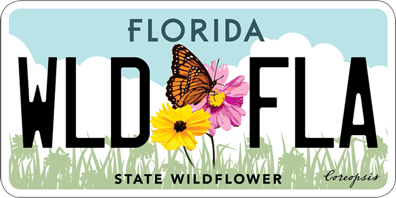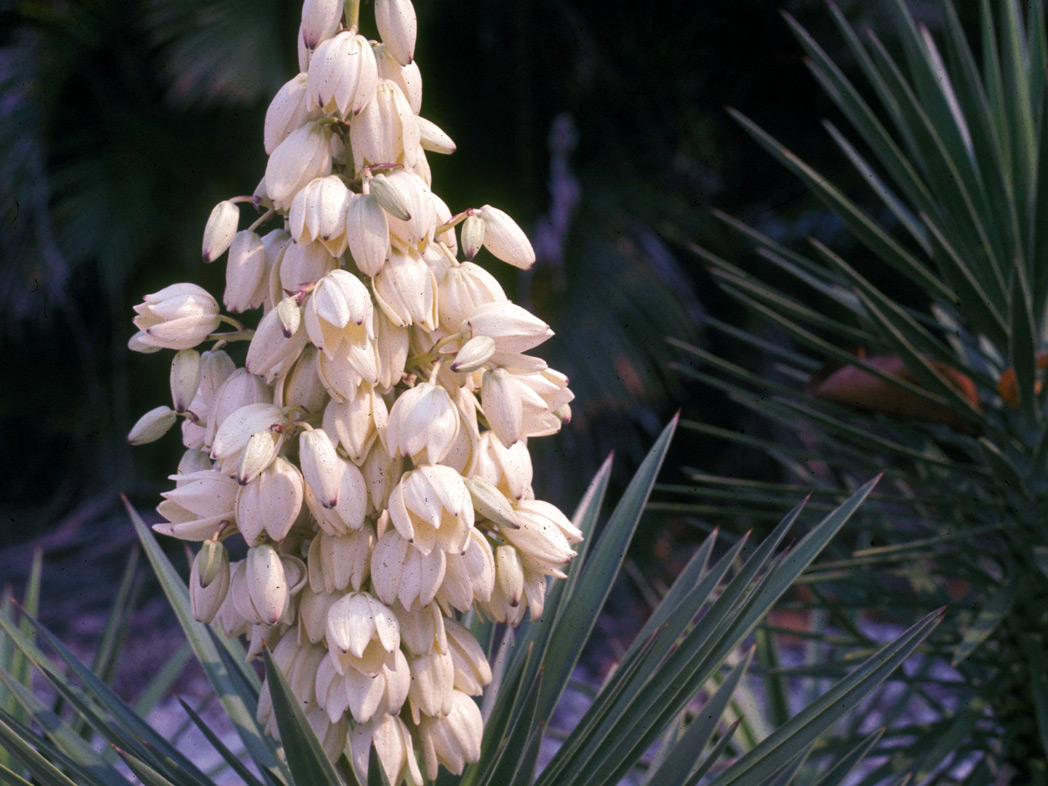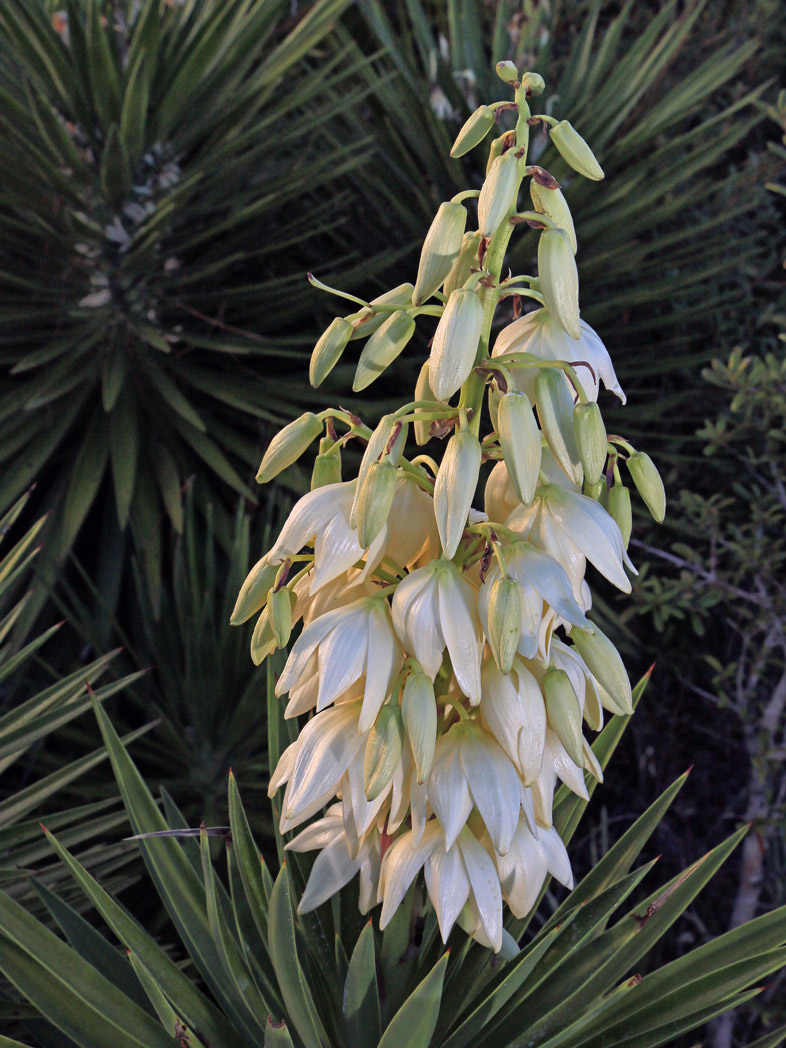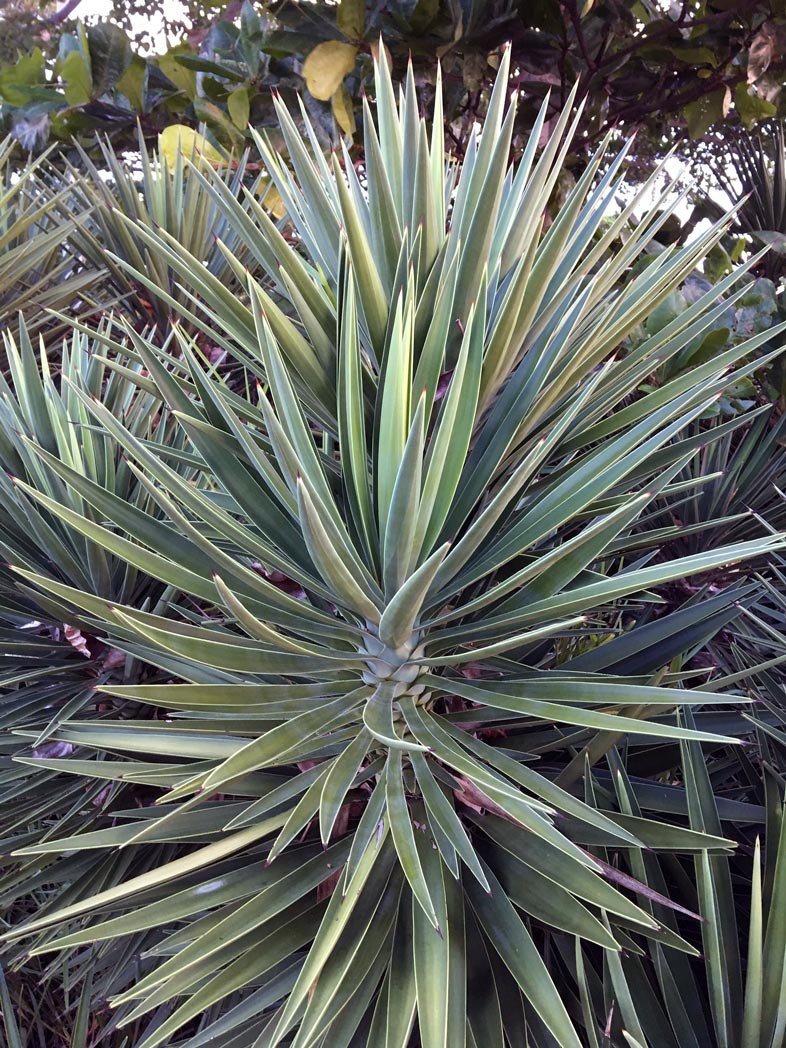Spanish bayonet
Pictured above: Spanish bayonet (Yucca aloifolia) by Jenny Evans (CC BY-NC 2.0). Click on terms for botanical definitions. View post as a PDF.
Spanish bayonet occurs naturally in sandhills, dry thickets, disturbed sites, and coastal strands, hammocks and grasslands. It flowers spring through fall and provides food and cover for a variety of wildlife and pollinators. The blooms are frequented for their nectar by hummingbirds and butterflies such as the Great southern white (Ascia monuste). Spanish bayonet is also a larval host plant for the Cofaqui giant skipper (Megathymus cofaqui) and Yucca giant skipper (Megathymus yuccae) butterflies.
Spanish bayonet (Yucca aloifolia) is an erect, woody evergreen shrub that produces large (1-3 feet) terminal panicles of showy white flowers. Individual blooms are six-parted, bell-shaped and droop downward. They are often tinged with purple. Leaves are long, dark green and linear to lanceolate in shape. They are stiff and sharply tipped.
Family: Agavaceae (Century plant family)
Native range: Nearly throughout, but mostly in coastal counties
To see where natural populations of Spanish bayonet have been vouchered, visit www.florida.plantatlas.usf.edu.
Lifespan: Perennial
Soil: Well-drained, sandy soils
Exposure: Full sun to partial shade
Growth habit: 5–10’+ tall, 3–6’ wide
Propagation: Seeds, division*
Florida regions of landscape suitability: North, Central, South
Garden tips: Because of its sharply tipped leaves, Spanish bayonet is not recommended for landscapes where children may be present. It is, however, good for discouraging foot traffic in a particular area and used as a barrier hedge. Its distinct foliage and flowers make it a nice accent plant either as an individual specimen or in a group. Spanish bayonet can live up to 50 years.
Caution: Spanish bayonet’s leaf tips are very sharp, so division is not recommended unless tips can somehow be avoided.
Spanish bayonet plants are often available from nurseries that specialize in Florida native plants. Visit www.plantrealflorida.org to find a nursery in your area.
Learn more about Spanish bayonet from the Florida Native Plant Society and the Institute for Regional Conservation.



